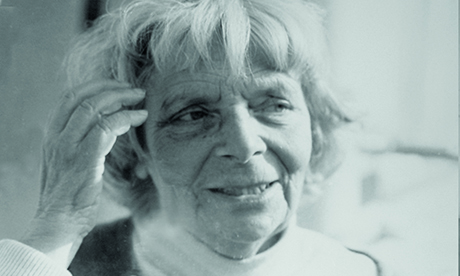Stranger in a Borrowed Land – review

New biography of Hackney writer Lottie Moos: Stranger in a Borrowed Land. Photograph: Maggie Hewitt
Lotte Moos burst onto on Hackney’s literary scene in the 1960s, having fled Nazi Germany with her husband Siegi in 1933. Founding members of the Hackney Writers’ Workshop, which met at Centerprise in Dalston from 1976, Lotte and Siegi Moos established themselves at the centre of the East End’s radical literary ferment.
Born Margarete Charlotte Jacoby in 1909, Moos wrote of being a story-teller from a young age: “I remember making things up in my head some time before I could handle a pen or scratch letters with a slate-pencil”.
Serious critical acclaim came late, however. It was not till she published her first volume of poetry in 1981 (Time to be Bold) that she began to be feted and anthologised after she was swept up by the 1980s wave of enthusiasm for women’s literature. Stranger in a Borrowed Land is a biography by Moos’s publisher David Perman at Rockingham Press.
It charts the couple’s peregrinations through London, Oxford and Durham, before they eventually settled at 22 Gore Road in Victoria Park in 1966. The bulk of the text focuses on the period when Moos first arrived in Britain, only to catch the attentions of MI5 as a suspected Soviet spy.
In 1940 she was briefly interred in Holloway Prison, before entering a stretch of domesticity in Oxford. Moos was always political, if not the Soviet subversive the security services had feared. Her sharp wit and cutting satirical dissection of topics ranging from Stalin’s Russia to Thatcher’s Britain established her as a staunch left-wing voice in the post-war era.
In this sense, Hackney was an appropriate place for her to make her name, and this volume provides a useful re-evaluation of her work. Had more emphasis been placed on her writing and later life rather than her early years in the UK, the biography would have been more interesting still.
Stranger in a Borrowed Land: Lotte Moos and Her Writing by David Perman is published by Grendel Publishing.
ISBN: 978-0-9566570-1-5, RRP £9.99.
